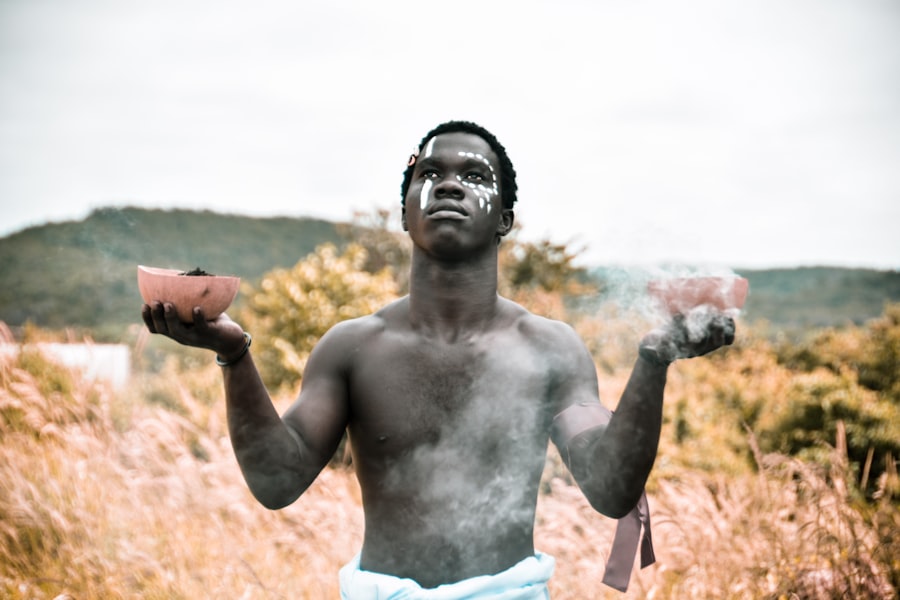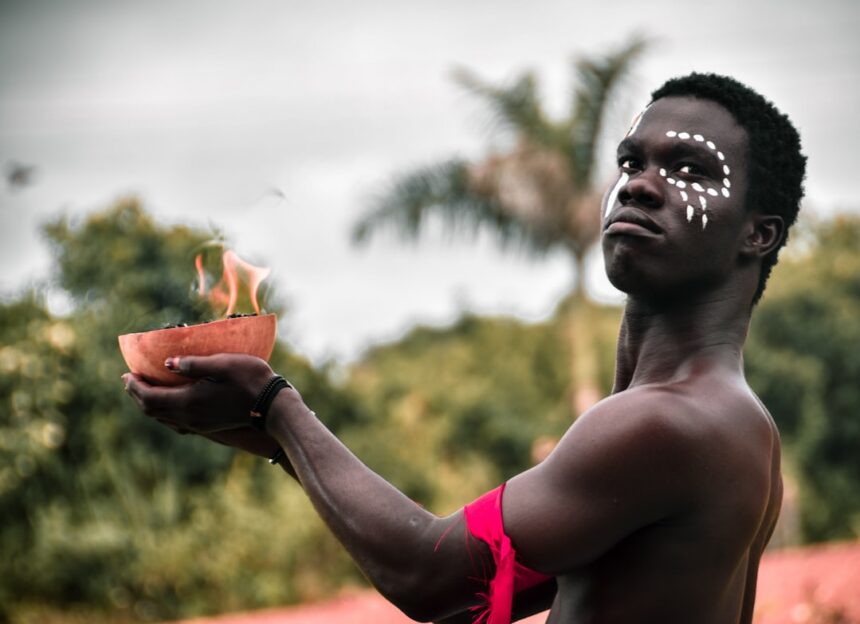You may find yourself in a moment of profound realization, a sudden awakening that shakes the very foundation of your existence. This shock can be both exhilarating and terrifying, as you begin to see the world through a new lens. It’s as if a veil has been lifted, revealing truths that were previously obscured by the mundane routines of daily life.
You might feel a rush of energy coursing through you, igniting a desire to explore the depths of your consciousness. Yet, alongside this excitement, there is an undeniable sense of disorientation. The familiar patterns that once provided comfort now seem constricting, and you are left grappling with the implications of this newfound awareness.
As you navigate this awakening, you may experience a whirlwind of emotions. The initial thrill can quickly give way to confusion and fear as you confront the reality of change. You might question everything you once held dear, from your beliefs to your relationships.
This shock can feel like being thrust into uncharted waters, where the currents are strong and unpredictable.
It’s a tumultuous time, filled with both hope and trepidation, as you stand on the precipice of transformation.
Key Takeaways
- Awakening can be a shocking and disorienting experience, as it challenges our existing beliefs and perceptions.
- The journey of awakening can be lonely, as it often involves questioning and distancing oneself from old social circles and belief systems.
- Struggling with old beliefs is a natural part of the awakening process, as we confront and challenge the ideas that have shaped our lives.
- The fear of losing control can be overwhelming, as we navigate the uncertainty and confusion that comes with awakening.
- Letting go can be painful, as we release old patterns and attachments that no longer serve us.
The Loneliness of the Journey
As you embark on this path of self-discovery, you may soon realize that it can be an isolating experience. The journey inward often feels solitary, as those around you may not understand the changes you are undergoing. Friends and family might notice your shift in perspective but struggle to relate to your evolving thoughts and feelings.
This disconnect can lead to a profound sense of loneliness, as you grapple with the realization that not everyone will accompany you on this journey. You may find yourself yearning for connection, yet feeling increasingly alienated from those who once shared your worldview. In this solitude, you might discover a deeper relationship with yourself.
While loneliness can be painful, it also offers an opportunity for introspection and growth. You may begin to appreciate the quiet moments spent in reflection, allowing you to delve into your innermost thoughts and feelings. This time alone can be a fertile ground for self-exploration, where you can confront your fears and desires without external distractions.
Embracing this solitude can ultimately lead to a stronger sense of self, as you learn to navigate your own emotions and cultivate resilience in the face of adversity.
The Struggle with Old Beliefs

As you continue on your journey, you may find yourself wrestling with deeply ingrained beliefs that no longer serve you. These old paradigms can feel like chains, binding you to a version of yourself that is no longer relevant. You might experience an internal tug-of-war as you question the validity of these beliefs while simultaneously feeling their weight pressing down on you.
This struggle can be disheartening, as it often requires confronting uncomfortable truths about yourself and your past. You may find that letting go of these old beliefs is not a straightforward process. It often involves peeling back layers of conditioning that have shaped your identity for years.
You might feel a sense of loss as you release these familiar constructs, mourning the comfort they once provided. Yet, within this struggle lies the potential for liberation. As you challenge these outdated beliefs, you open yourself up to new possibilities and perspectives.
The Fear of Losing Control
| Fear of Losing Control Metrics | Statistics |
|---|---|
| Percentage of population affected by fear of losing control | 25% |
| Common symptoms | Increased anxiety, panic attacks, obsessive thoughts |
| Impact on daily life | Difficulty making decisions, avoidance of certain situations |
| Treatment options | Therapy, medication, relaxation techniques |
With each step forward on your journey, the fear of losing control may loom large in your mind. As you embrace change and uncertainty, it’s natural to feel apprehensive about what lies ahead. You might worry about relinquishing the familiar structures that have provided stability in your life.
This fear can manifest in various ways—anxiety about the future, reluctance to take risks, or an overwhelming desire to cling to the past. It’s important to acknowledge these feelings without judgment, recognizing that they are a natural part of the transformation process. In grappling with this fear, you may discover that control is often an illusion.
The more you try to hold onto it, the more elusive it becomes. Instead of resisting change, consider embracing it as an opportunity for growth. You might find solace in surrendering to the flow of life, trusting that each experience is guiding you toward your highest self.
This shift in perspective can be liberating, allowing you to release the need for certainty and embrace the beauty of the unknown.
The Confusion and Uncertainty
As you navigate this transformative journey, confusion and uncertainty may become constant companions. You might feel like you’re wandering through a fog, unsure of which direction to take or what choices to make. This state of limbo can be disorienting, leaving you questioning your decisions and second-guessing yourself at every turn.
It’s easy to become overwhelmed by the myriad possibilities before you, leading to feelings of paralysis or indecision. In moments of confusion, it’s essential to practice patience with yourself. Understand that uncertainty is a natural part of growth; it often precedes clarity and insight.
Instead of seeking immediate answers, allow yourself the space to explore different paths without pressure. You might find that embracing uncertainty opens doors to new opportunities and perspectives that you hadn’t considered before. By cultivating a sense of curiosity rather than fear, you can transform confusion into a catalyst for deeper understanding.
The Pain of Letting Go

As you continue on this journey, the pain of letting go may become increasingly apparent. You might find yourself faced with difficult choices—relationships that no longer align with your values or habits that hinder your growth. Each act of release can feel like a small death, as you mourn what was once familiar and comfortable.
This process can be heart-wrenching; it’s not just about saying goodbye to people or situations but also about relinquishing parts of yourself that have defined who you are. In confronting this pain, it’s crucial to honor your feelings rather than suppress them. Allow yourself to grieve what you are letting go; this acknowledgment is an essential step toward healing.
You may find solace in expressing your emotions through journaling or creative outlets, providing an avenue for catharsis. As painful as it may be, letting go creates space for new experiences and relationships that resonate more deeply with your evolving self.
The Resistance from Others
As you undergo this transformation, you may encounter resistance from those around you. Friends and family members might express concern or disbelief regarding your changes, clinging to their perceptions of who you used to be. This resistance can manifest in various ways—skepticism about your choices or attempts to dissuade you from pursuing new paths.
It’s important to recognize that their reactions often stem from their own fears and insecurities rather than a reflection of your worth or potential. Navigating this resistance requires both compassion and assertiveness. While it’s essential to honor their feelings, it’s equally important to stand firm in your truth.
You might find it helpful to communicate openly about your journey, sharing your insights and experiences with those who are willing to listen. However, remember that not everyone will understand or support your path; some may need time to adjust to the changes they see in you. Ultimately, surrounding yourself with those who uplift and encourage your growth can help mitigate the impact of external resistance.
The Dark Night of the Soul
At some point in your journey, you may encounter what is often referred to as the “dark night of the soul.” This period can feel like an emotional abyss—a time when everything seems bleak and devoid of meaning. You might grapple with feelings of despair or hopelessness as old patterns crumble around you. This experience can be disorienting; it’s as if you’re caught in a storm without any clear way out.
While this dark night can be incredibly challenging, it also serves as a powerful catalyst for transformation. In facing your shadows head-on, you have an opportunity to confront deep-seated fears and unresolved issues that have long been buried beneath the surface. Embrace this darkness as a necessary part of your growth; it often leads to profound insights and revelations about yourself and your purpose in life.
Remember that even in the depths of despair, there is potential for rebirth and renewal.
The Physical and Emotional Turmoil
As you navigate this transformative journey, both physical and emotional turmoil may arise in tandem with your inner work. You might experience fatigue or restlessness as your body processes the shifts occurring within you. Emotional upheaval can manifest as mood swings or heightened sensitivity; one moment you may feel elated by newfound insights, while the next could bring waves of sadness or anxiety crashing over you.
It’s essential to honor these physical and emotional responses as valid expressions of your transformation process. Consider incorporating practices such as mindfulness or gentle movement into your routine; these can help ground you during turbulent times. Additionally, nurturing yourself through self-care—whether through nourishing foods or restorative activities—can support both your physical health and emotional well-being during this period of upheaval.
The Search for Meaning and Purpose
Amidst the chaos and uncertainty, a profound search for meaning and purpose often emerges during this transformative journey. You may find yourself questioning what truly matters in life—what brings fulfillment and joy? This introspective exploration can lead to moments of clarity where insights about your passions and values come into focus.
You might feel compelled to align your actions with these newfound understandings, seeking out experiences that resonate deeply with your authentic self. This search for meaning is not always linear; it may involve trial and error as you experiment with different paths and pursuits. Embrace this exploration as an opportunity for growth rather than a destination to reach.
Each experience contributes to your understanding of what brings purpose into your life; even setbacks can offer valuable lessons along the way.
The Healing and Transformation
Ultimately, this journey culminates in healing and transformation—a profound metamorphosis that reshapes how you perceive yourself and the world around you. As you release old beliefs and embrace new perspectives, you’ll likely notice shifts in your relationships, career aspirations, and overall sense of well-being. Healing often involves integrating lessons learned during challenging times; it’s about emerging from darkness with newfound strength and resilience.
You may find joy in celebrating small victories along the way—moments when clarity replaces confusion or when connections deepen with those who support your growth. Embrace this transformation as an ongoing process rather than a final destination; each day presents an opportunity for further evolution and self-discovery. As you continue on this path toward healing, remember that every step taken is a testament to your courage and commitment to living authentically.
Spiritual awakening is often described as a profound and transformative experience, yet it can also be accompanied by significant emotional and psychological pain. This paradox arises because awakening involves shedding old beliefs and confronting deep-seated fears, which can be unsettling and disorienting. An article on




